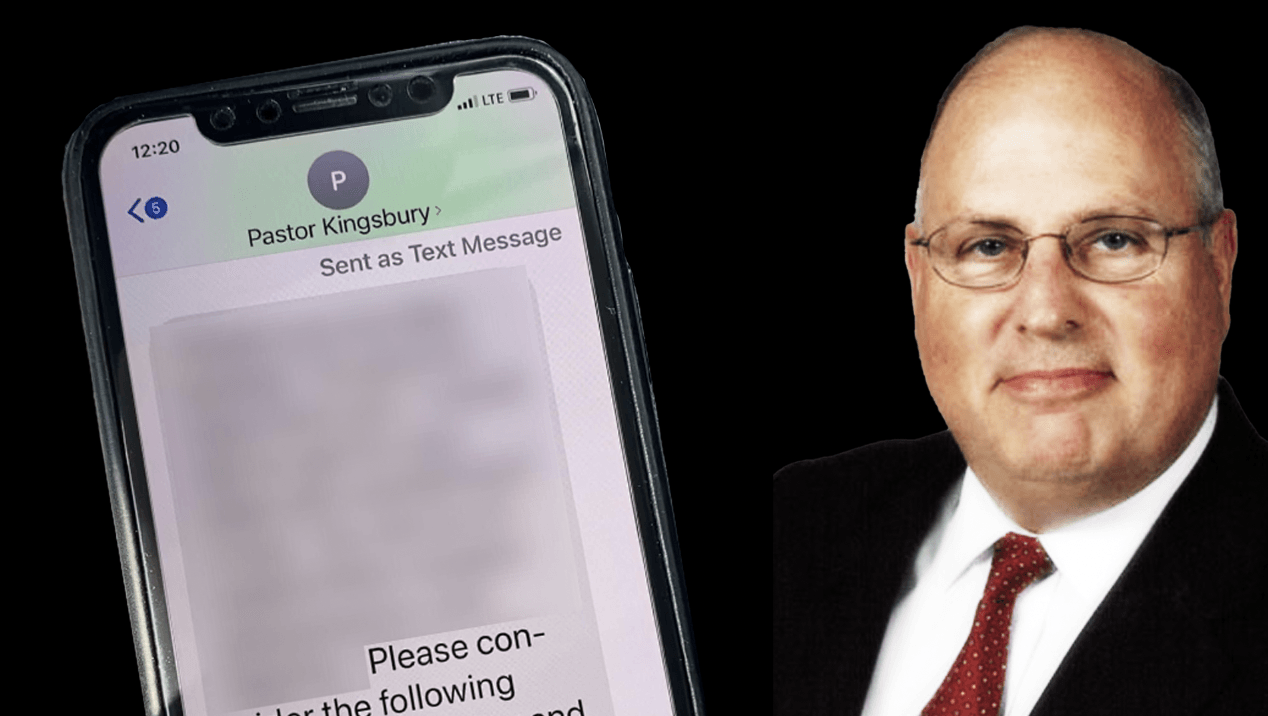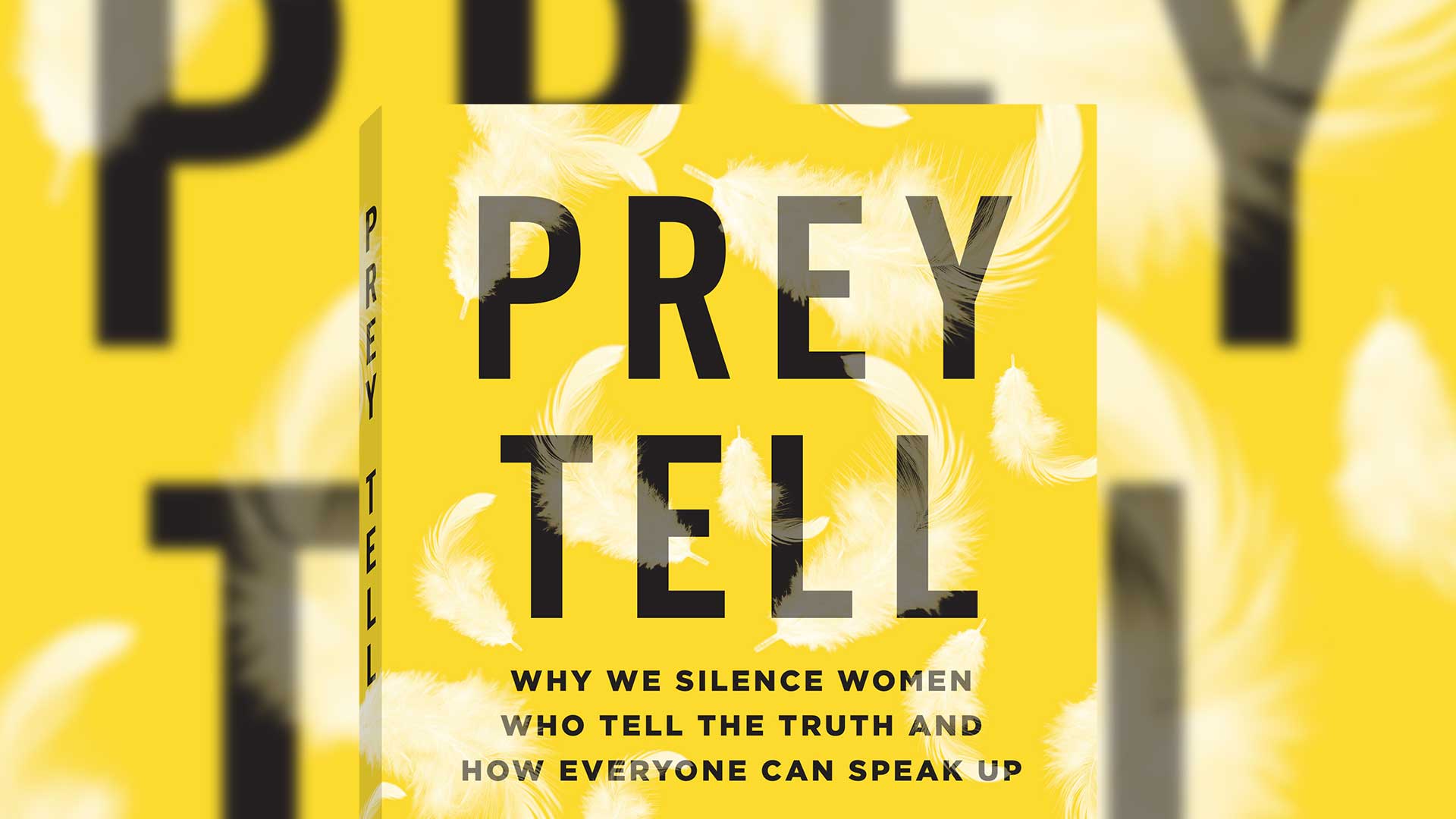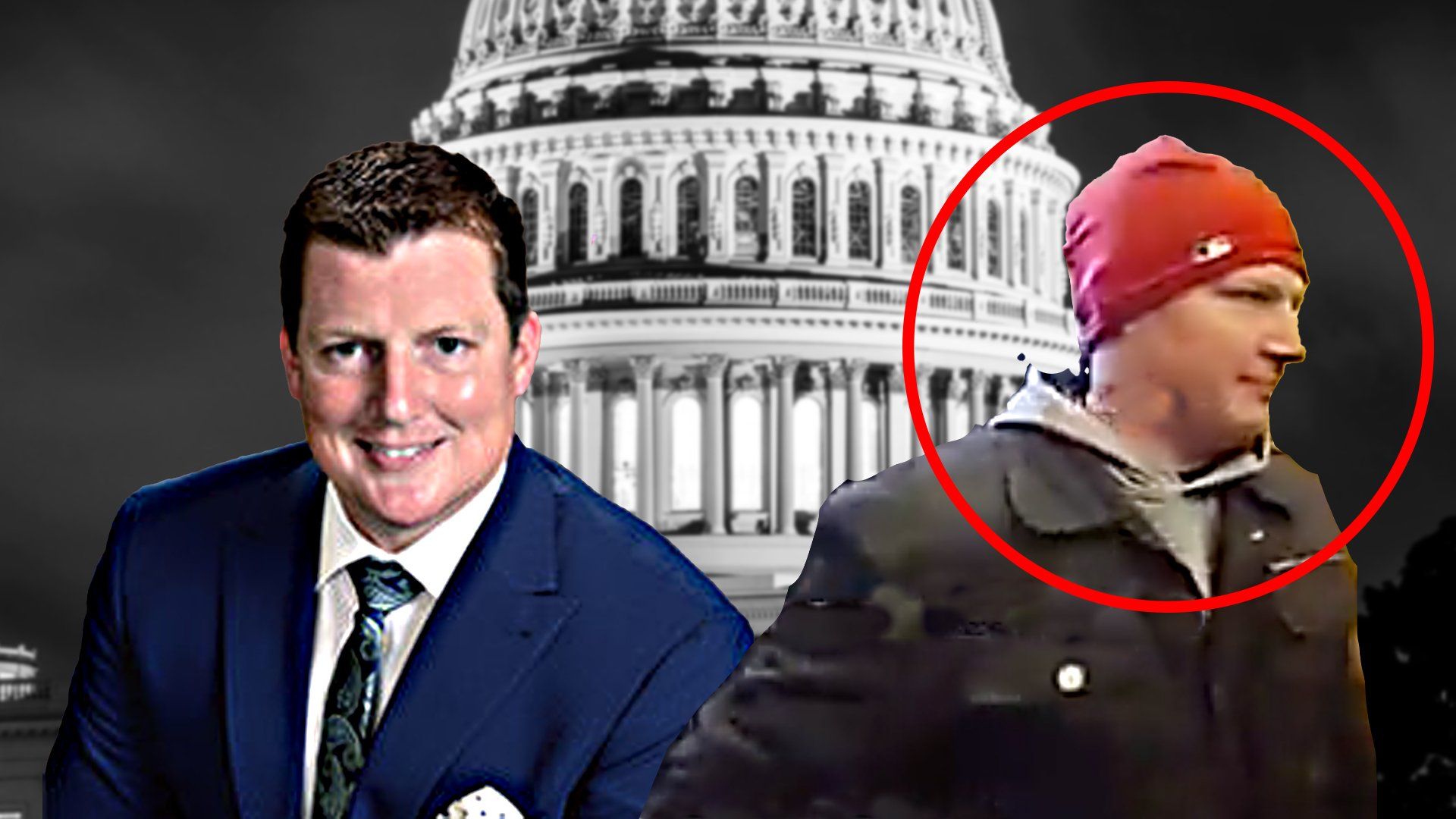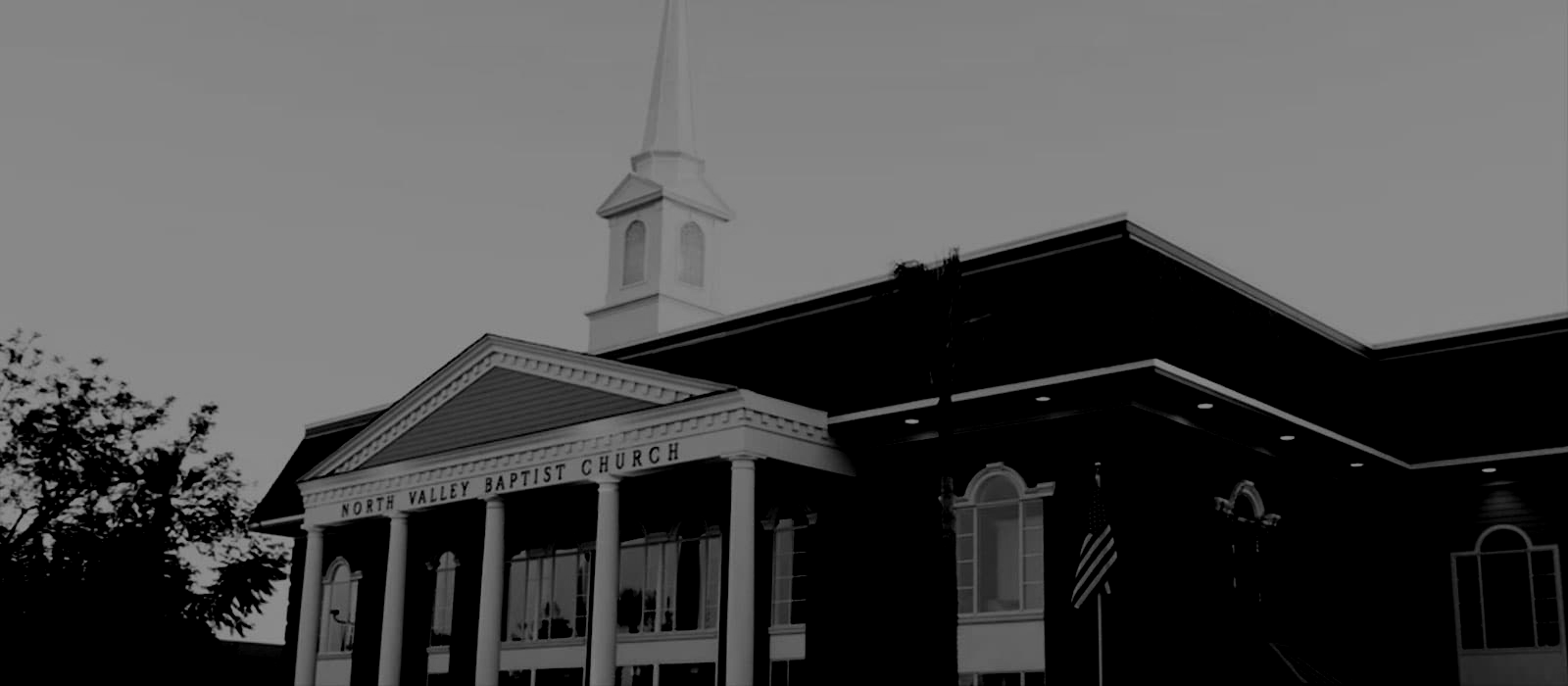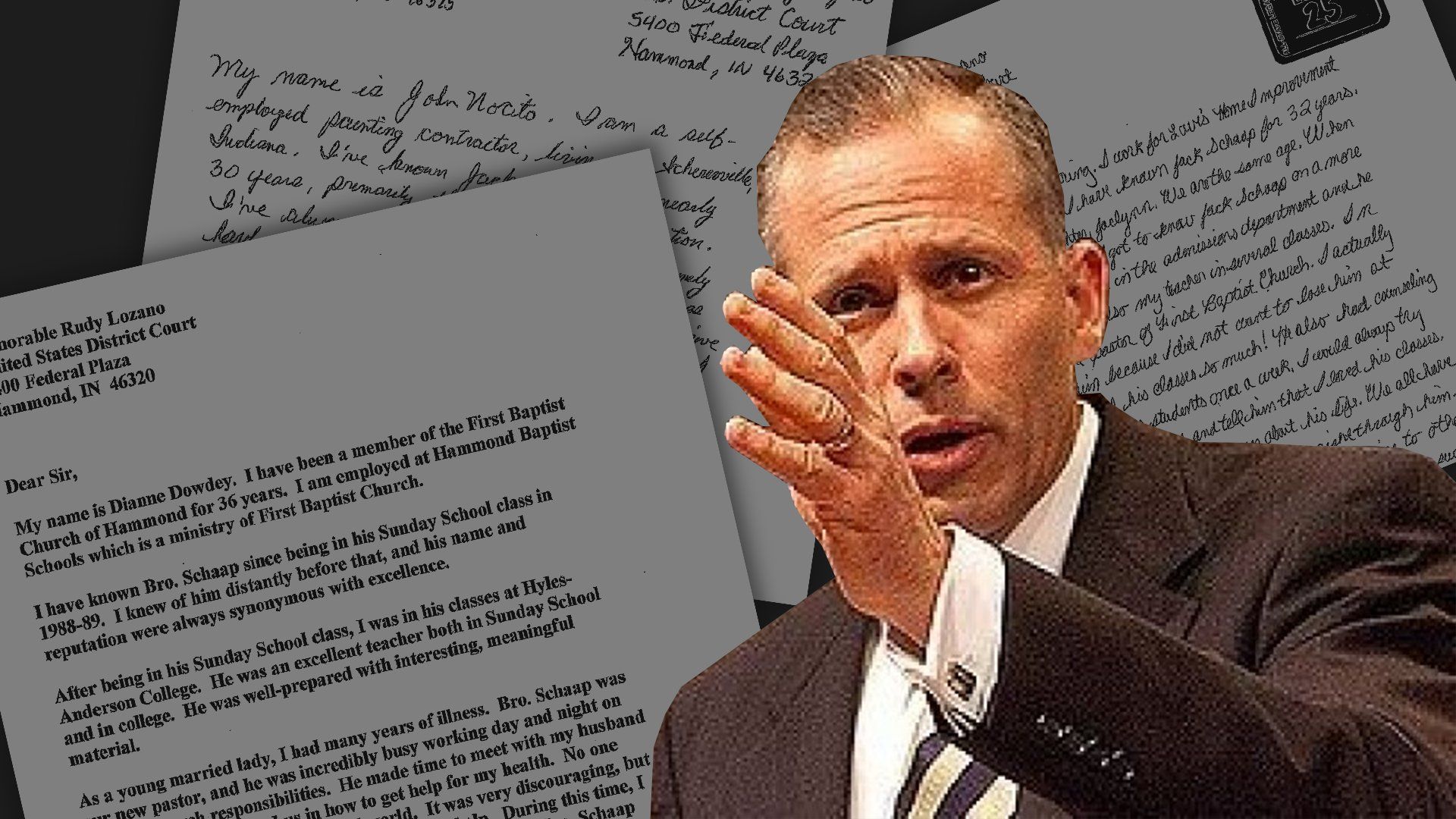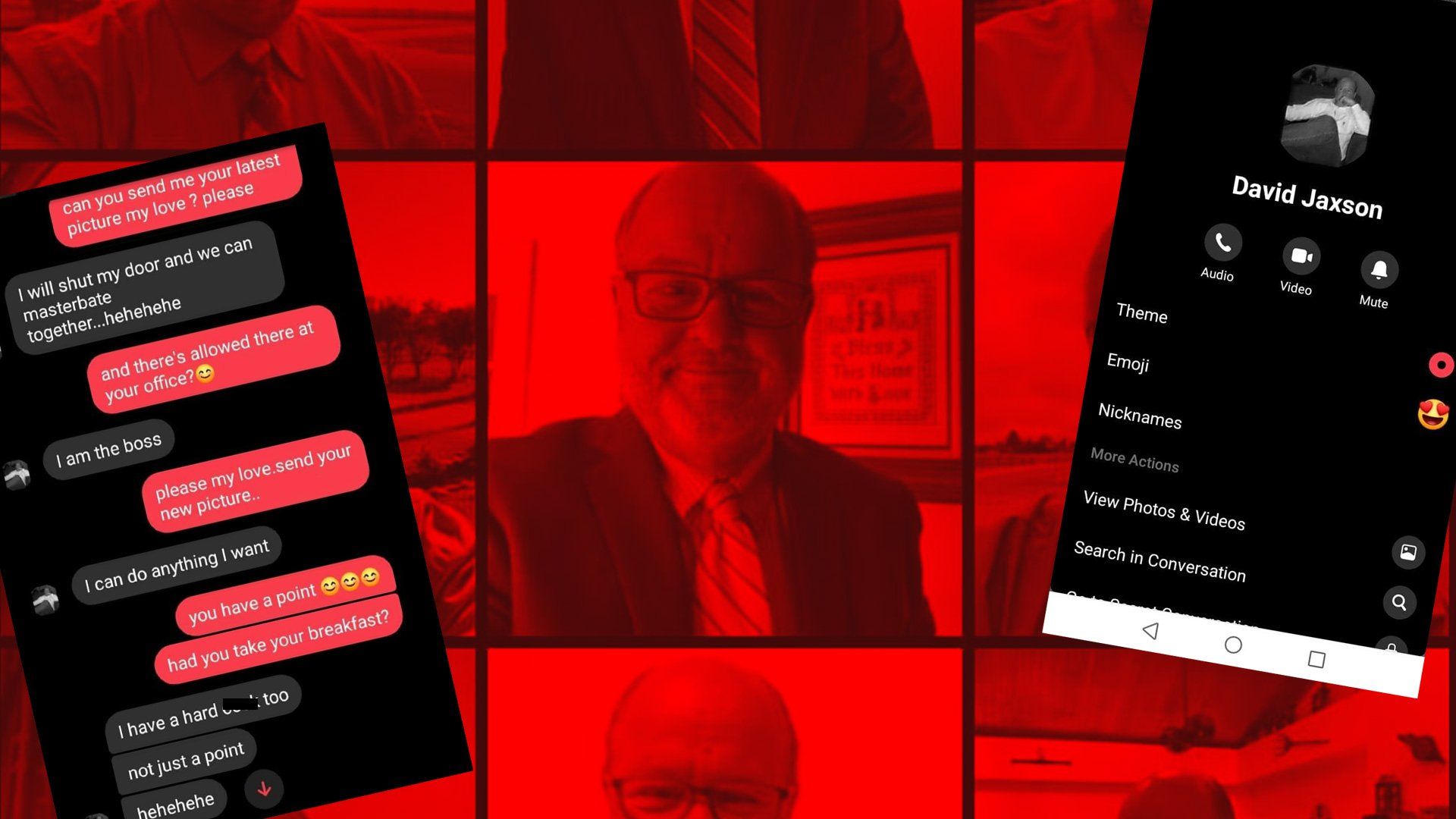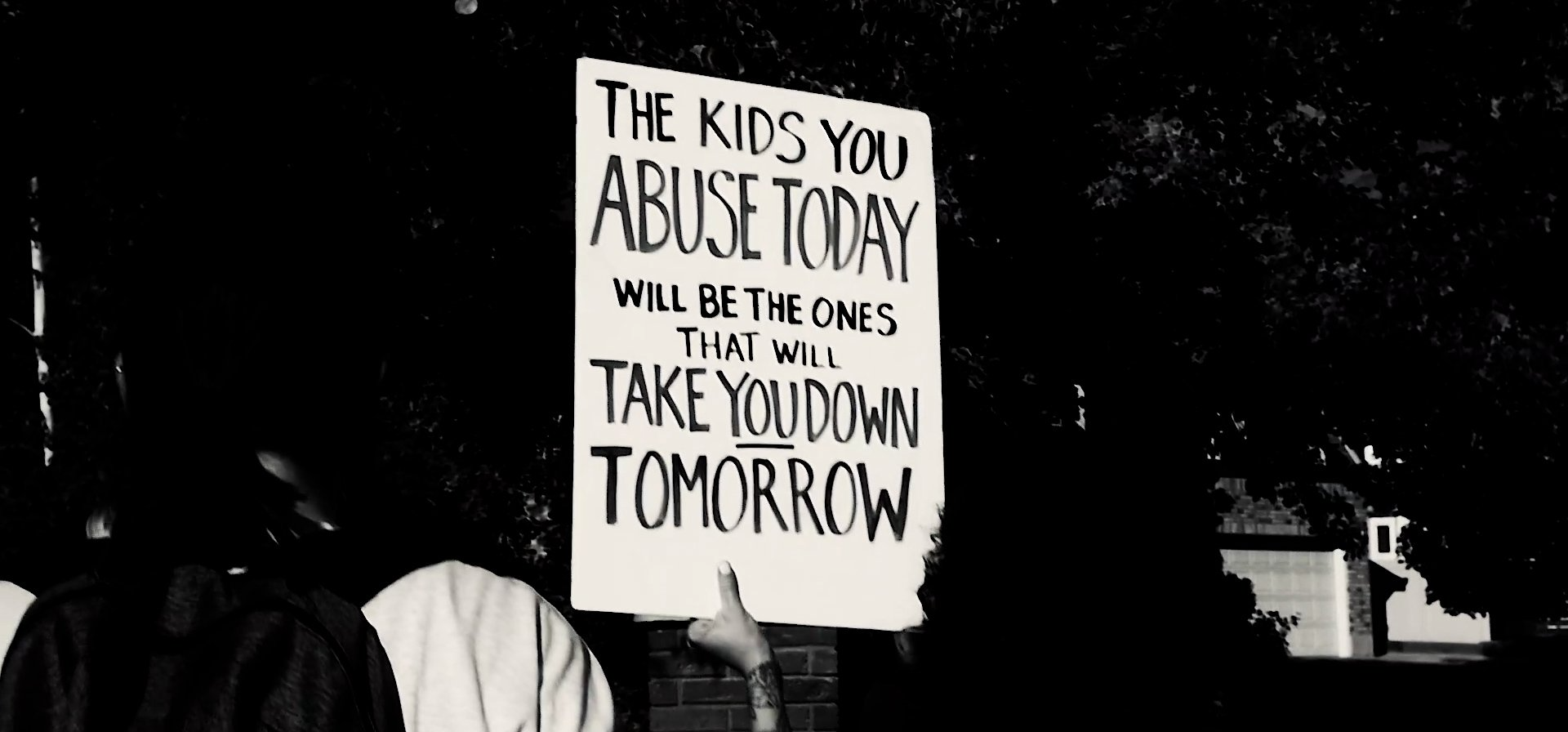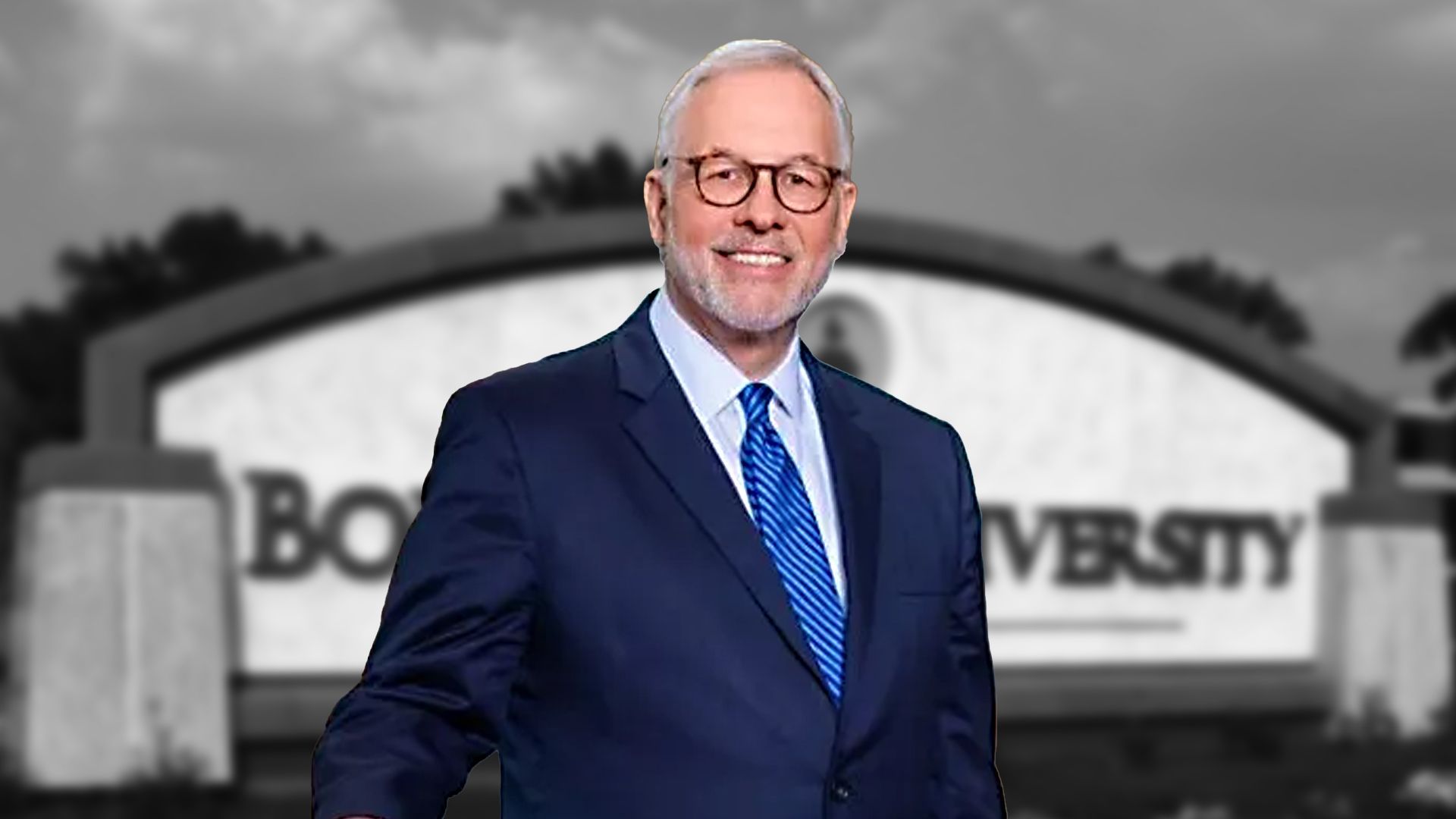Rachel Peach (Pt. 3) | How a Survivor Became an Advocate
***Trigger warning. This podcast contains description of various abusive situations. Listener discretion is advised. You are listening to the Preacher Boys Podcast, a Podcast shedding light on decades of mental, physical, and sexual abuse within the Independent Fundamental Baptist movement. The testimony shared on this podcast are told from the personal experience and perspective of the survivors. Not all legal outcomes are known or final, and the suspect is presumed innocent until proven guilty in the court of law. To find more information about the Preacher Boys Podcast and upcoming documentary visit preacherboysdoc.com or connect on Facebook, Instagram, or Twitter with the handle @preacherboysdoc. Now here's your host, Eric Skwarczynski.***
Eric: Hey guys, thank you so much for tuning into this episode the Preacher Boys Podcast. This is part 3 of my interview with Rachel Peach, If you haven’t listened to the first two episodes, you can find those right now wherever you’re listening and be sure to check those out. Just you you have some contact for this final episode.
On this episode, we’re going to talk about Rachel’s incredible work advocating for other survivors of abuse within the Independent Baptist movement. It’s a powerful segment, it leaves on an incredibly high note. And like I said, at the beginning, when we first started these episodes, you’re going to walk away from this with an incredible amount of respect for Rachel. She's an incredible, incredible human being and I think that the story she shared is powerful and deserves to be heard by everybody, Independent Baptist or not. As just a story of strength, courage, and advocacy for others who need help. So listen to this entire episode and be sure to share it with someone who could take a benefit from it. Thank you guys, I’ll see you at the end of the episode.
Eric: So I don't want you to have to go to nuts and bolts in the trial side.
Rachel: There was no trial, he just pled guilty.
Eric: Okay, Did you…
Rachel: But I did go to court.
Eric: Okay, okay, so you did testify and shared.
Rachel: All I did, I gave my victim impact statement at sentencing. I mean, even those few months leading up to that. That was just a whirlwind to go from nobody knowing, to one person knowing which was huge, to a handful of people knowing. And then there I thought about it, I, and all of us thought about it, we wanted to be the ones to tell our story. And so myself and the, April, and the other survivor that came forward, we told our stories on Facebook, the weekend after, or the day after he was arrested. And it all just kind of happened very, very quickly. That you go from nobody knowing, to thousands of people knowing in a matter of weeks. And, you’re still kind of processing what even happened and still learning about what even happened. And, it was also that time, I mean, I remember, the night that he was arrested and my detective was going to warn me that there was going to be a press release. And I remember thinking, “this isn’t going to be on the news, is it?” And he was like, “eh, well we are near LA County, it might get big and but you don’t need to worry about it, like it’s fine.” And I’m like, “yeah, its not going to be a big deal.” And within 48 hours, it was on every major news network in Southern California.
And that was just a lot to take in. And also, at that time I had filed a lawsuit against my church. And some of the news networks accessed my lawsuit and even used my name without my permission. With details of my abuse in different news stations. Things, that I haven’t even been able to tell my husband the extent of it, and he’s learning it on the news. Like it was bad, and no one, I mean, there’s no manual on how to deal with this. And, seeing your abusers mugshot all over the news and your name attached to it with details of your abuse. Yeah, that was not expected and that was very difficult, but now I know.
Eric: Yeah, I know we're getting near the end, but I'm curious. Giving your victim impact statement, like, what was the emotion you felt at that point? Because obviously, now, you’re ending this chat like that, that’s a very formal ending of this chapter. Of this horrible, I mean, years of trauma, what did you feel at that moment? Being able to like, actually look him in the eyes and say, “this is what happened, this is what you really did.”
Rachel: I worked on it for a long time, because I knew, this is it. This is my only chance to say anything. And, as I wanted him to know how much he hurt me. I also wanted the church to know how much they hurt me and their reaction or lack thereof, was extremely hurtful as well. And, I also, I felt like I needed to show because there was a lot of girls that did not speak up. There was seven of us that came forward to the police, there was three of us that pressed charges, and there was probably 20 more that either opened up to me or opened up to April, but said they don’t want to get involved. And, that was really hard to process, that like, he was only sentenced to five in prison and he’s up for parole in April. And, knowing just how bad it really was, but on paper it only showed three victims, only, but one is worse enough.
Eric: But, even that you would expect more than five years, yeah.
Rachel: Exactly, but I felt like I needed to show them. I know we’re broken, I know that he hurt us, and we’re still processing this, but he can’t control it anymore. And, so I did feel like I needed to be strong and to show them, and everybody else, that you could be broken bu you can build yourself up again. And, it’s possible and so, I mean, I was very proud of my impact statement and God really did help me give, give me the strength.
And it’s funny because, when we were sitting in there waiting for the judge to come in and stuff, our detective walked over and he says, “Hey girls, I moved the podium over there so that you don’t have to look at him, so you can face over here, the judge, so you don’t have to see him when he comes in.” And all of us like looked at each other and looked back at him, we’re like, “Why?” He was like, “you don’t want to look at him, do you?” We we’re like, “Ah, no, we want him to look in our eyes and see exactly what he did.” And he was like, “Oh, okay, I’ll go fix it.” And I mean, it was one of the most beautiful things and heartbreaking things all at the same time. To just watch these girls go up there and talk about what he put us through, but know that justice is happening right now, as we’re speaking. And, I, from where I was standing, his attorney did stand directly in front of him, so that we won’t, he won’t have to see us. Which was a very cowardly move in my opinion.
And, but family members from the other side, so that the entire time we were giving our impact statements, he was either laughing or shaking his head in disagreement. And I don’t really understand that. Like, you literally admitted it, there was nothing funny anymore happening. And, even when the judge asked him, “Is there anything you know for, you want to say to the victims and their families?” And he said, “No.” He didn’t want to say anything. And it, that was I think hard because I think I was expecting to see remorse after everything that’s happened, and that did not happen. Instead, he’s laughing and shaking his head, as we talk about the traumatic things that he put us through as kids. And, yeah, that was very difficult to see but I walked out, and he didn’t.
Eric: Right, yeah, that’s I think, that’s an awesome place. I know there’s a lot of stuff going on now with the lawsuit and everything. Which we, there’s just not much to say right now to dive into just yet. But, you have become very vocal about abuse within the Independent Baptist movement. You’ve seen it obviously and you know that it is a big problem and you become very outspoke, and an advocate for lack of better word. I always feel like words like that, don’t have a lot of meaning, but you really have been an advocate for survivors and have made yourself really squared off against this movement. So, I’m curious, like what’s pushing you to keep, you know, keep being so vocal about this? You know, obviously, your case has been as much legally as can happen with it, has happened. But now, you’re really taking time to help other people and to just keep raising the alarm on this. What’s motivating you to keep pushing into the kind of advocate role? As opposed to setting this on the shelf and trying to move on and go forward from there.
Rachel: I think there’s something beautiful in finding your voice. And, you realize just how brave you actually are. And, but I think a lot of it, honestly, is I’m going to start crying, my relationship with God now. I feel like I spent so many years, hating him, hating him and blaming him for what I went through at the hands of someone that represented him. And, I really struggled with what God is. And during the investigation, when I was just at my lowest and everything was just happening very quickly. I mean, I told God, “You’re the one that made this mess, you need to be the one to fix it. And if. You can fit it, then we can do this. Then we can work together.” And, I felt through the investigation, through the people that I’ve talked to, through the many girls that I talked to, I feel like I found this like strange, unique community of people that were hurt at the hand of someone that represented God. And their church did absolutely nothing about it, and made it worse. And when you’re hurt in an environment like that, yes, you can, you can hate yourself, you can hate your abuser, you can hate your environment. But, unfortunately, the other person that gets a lot of hatred is God, and it sucks, but that’s just how it is.
And, I felt like he revealed himself to me and in one of the realest ways that I could have ever seen. And he fought for my justice and he fought for my freedom. And, I felt like he showed me this role that had not been filled yet, at that point. For people that have been through abuse, have been through sexual abuse, spiritual abuse, and still believe in him and still want to make him look good, despite all of the bad that has happened. And, so I really do believe and I really do fell like God kind of put me in that position and gave me this role. And there’s too many people I can’t disappoint now, and too many people that I know, and I’m not saying this in a way to brag on myself, I’m saying it in a way to brag on God, because that’s what he can do in people’s lives. And that these monsters that made him look like a fool, is not him. And, the people that are protecting them and the people that are wanting to act like this never happened, need to be exposed and need to be called out and need to be in jail for what they have done.
And, so to answer your question, I feel like I found the purpose and the passion that I was looking for. And, I didn’t think it would be the worst time of my life that I would be passionate about, but that is what God has kind of given me. And I don’t want to mess that up now.
Eric: I always ask this question at the end, I think we’re leading right into it. But, I just have to know, do you think that there’s hope for reform of the IFB movement itself? Or, do you think it’s something that needs to be put to rest? Hence it’s broken, what do you hope to see as a result of your kind of advocacy work in this area?
Rachel: I mean, I am not here to say that every IFB church needs to be closed down. I’be had great conversations with different pastors and different church leaders that are still involved and very much still associate themselves with the IFB. And, I don’t think their churches need to be closed down. I do wish that, I mean, even just five years ago the conversation of abuse was not one that was taken seriously and, or it was just not discussed at all. And, that’s not just, I feel like yes, specifically in the church but also society. I feel like it’s changing what their views towards abuse and thing like that, but for specifically with church, it was something before that it was so brushed off with that’s gossip, that’s rumors, we’re not talking about that. If you don’t talk about it, it’s never going to get fixed. You don’t talk about it, there won’t be, there won’t ever be any change. And, so do I wish that every IFB church is closed? No, absolutely not. But, I do wish that with how public myself and many others are being with our experience; not just with our abusers but also with the churches that completely failed us. That it can show the next pastor that, if anything were to happen now they know what to do. And, now they definitely know what not to do.
And we can’t, you can’t stop a, you can but you can’t stop a sexual predator. They are going to find their way in a church, unfortunately, in a school, in a you name it. But, how you react and how your church is set up will predict how far they can get. And, I just hope that our, everything that we’re talking about can prevent that from ever happening, again. And, so in a long answer, no, I don’t think they can, they should be closed. But I do think that there’s al lot of things that we can fix so that another Victor does not happen again.
Eric: Yeah, that's awesome. Well, I don’t want to add too much, I feel like you said everything that could be said, but I appreciate you sharing. I mean, I know this was a long conversation and, you know, I feel like we covered really everything. But, I just appreciate you sharing and not, you know, just stop letting this sit where it is and for using your voice to share your story and to inspire other people to share theirs and to encourage pastors to be aware of this stuff. And, I just want you know and I know I speak for people listening as well, like I don’t take it lightly that you just had this conversation. And, I don’t take it lightly that you just spent three hours talking about literally the worst experience of your life. And, I appreciate you a lot, and I appreciate just the work that you’ve been doing. I appreciate you sharing, and yeah, I just thank you. Thank you for sharing.
Rachel: Thank you.
***One year after Victor went to prison, Rachel was given the opportunity to speak at a Senate hearing in favor of changing the statute of limitations on sexual assault in Indiana.***
(Audio Recording) Male Voice: “Just identify yourself and if you represent anybody.”
Rachel: Hello, I am Rachel Peach. I’m from Northwest Indiana, as well. My husband, Dan and I live in Hobart, Indiana.
And, thank you all for meeting with us today, According to the Indiana State Department of Heaths’ Trauma Times dated September-October 2018, Emergency Health Facilities statewide treated 8,273 confirmed sexual assault cases in our state in 2016 to 2017. And, the majority of these cases, the victim was between the ages of 15 and 17 years old.
I was 15 years old when I was raped for the first time. I was continually abused by the same man and sexual abuse because the new normal for me. I learned to live with it and block out the trauma. In March 2018, the BBC conducted a study to determine that, 90% of sexual assault victims know their attacker. Whether that attacher is: a family member, a teacher, a couch, or in my case my church youth pastor. These predators often use their authoritative power to instill fear as a tactic to silence their victims. But the indisputable certainty is that these kids grow up. They don’t stay 15 year old, scared children forever. We become adults and with that maturity comes the understanding of what was happening to us, as innocent children was, completely wrong. When we finally gained the strength to come forward about the evil that was done to us, the one thing we could hope for is that the law would protect victims rather than the predators.
Victims of sexual assault in Indiana deserve a voice. They deserve the ability to stand for themselves, to face their abuser and to have the law on their side. The last thing that should be on the mind of a courages victim, willing to speak up should be, I wish I had said something sooner. These thoughts of guilt are placed on the wrong person, when time and the law become their enemy. When a victim finally takes the first steps towards getting help and begins the process of healing, the last thing they need to hear is that there’s nothing that can be done. Today, we have an opportunity to stand with victims and to show our wonderful country that, Indiana does not tolerate sexual assault of any kind and we are willing to do something about it now. (Audio Recording ends)
***Thank you for listening to the Preacherboys Podcast. If you appreciated the content on the show, please leave a review on iTunes and don't forget to connect with us on Facebook, Instagram, or Twitter with the handle @preacherboysdoc. Additional information can always be found on preacherboysdoc.com***
